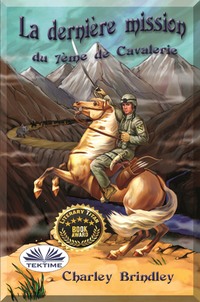
Полная версия
Raji, Book Three
Kayin gave me a severe look, then kissed me. “Why,” she asked, “did you not tell me that Raji was a woman?”
“As my best friend,” I indicated Raji, “has told me many times, I’m a blockhead.”
“Yes, you are,” they said together.
Raji took one of the chairs as Kayin and I sat on the couch.
“Have you two been talking about me for the last two and a half hours?” I asked.
“No, silly,” Raji said. “That only took the first five minutes.”
Kayin laughed. “Then we had a good, long talk about India, Burma, and how we should go about kicking the British from both our houses.”
Raji had a wash-up and changed her clothes, then I took the two ladies out for a delightful dinner at a small restaurant overlooking the docks. Near the end of the meal, I poured a little wine in each of their glasses.
“Raji,” I said, “you might have the room to yourself tonight.”
Kayin and Raji looked at each other, then laughed.
“What?” I asked.
“I already have a room for myself,” Raji said. “On the fourth floor of the hotel.”
“We took care of that earlier,” Kayin said, “before we went up to your room.”
* * * * *
On the third night after Raji’s arrival, she and I waited for Kayin to finish her shift at the front desk and join us. Meanwhile, we studied the map of the Irrawaddy River valley and reconsidered our plans to travel to the Chinese border. I wanted to stay on for a while in Mandalay, and Raji understood my feelings but wasn’t sure about what she wanted to do. Traveling on without me really didn’t appeal to her.
“How’s your tennis game?” I asked.
“Tush!” Raji gave me a look and rolled her eyes. “Tennis indeed. Panyas Maidan doesn’t know one end of a racquet from the other. I repeatedly had to take the man by the hand and show him where to stand when serving the ball. Then, last Thursday night, when he took me to the teahouse at Radha Bazaar in Baneeji Street, he let slip, or maybe said on purpose, that the dowry my mother promised him might not be enough. I almost choked on my curry. Then I wanted to choke him, and my mother.”
“Do you mean to tell me,” I said, “your mother had already promised him a dowry, along with your hand in marriage, before we met him that first night?”
“And he had the audacity to tell me the dowry wasn’t enough.”
I couldn’t keep from grinning. “What did you do?”
“I told that pompous fool that I wouldn’t marry him if his mother paid me a dowry.”
I laughed.
“And then I told my mother exactly what I thought of her as I packed my suitcase and left for Mandalay.”
“When we were introduced to him,” I said. “I thought he was a rich gentleman.”
“Yes, and an architect. Do you remember when he said he drew pictures of buildings, then left the construction to more capable hands?”
“I do.”
“He draws pictures of buildings all right. He’s a street artist, and a poor one at that. And his so-called club is the municipal park where we had to wait an hour for a vacant tennis court.”
“When will your mother ever learn?” I took my pipe from the inside pocket of my jacket and began to fill it with tobacco.
“When will I ever learn, you mean. And when did you start smoking a pipe?”
I struck a match and drew on the stem. “Last week.” I went out to the telephone mounted on the wall in the hallway and rang up room service for tea and coffee. The night waiter brought the tray up to my room, and a few minutes later, Kayin came in, followed by a man.
“I would like for you to meet someone,” she said to Raji and me. I don’t think Raji noticed it, but I thought I heard a slight tremor in Kayin’s voice.
We stood up to greet him. He wasn’t dressed in traditional Burmese clothing, but instead wore a Western-style gray suit, nicely cut but inexpensive. His posture was very straight, his bearing almost military, and he was taller than most Burmese men. I guessed his age to be late twenties. With the front brim of his black hat turned down, he could have stepped right out of a Charlie Chan movie.
“This is Major Kala-Byan,” Kayin said.
He removed his hat as he stepped forward to take Raji’s hand, bowing slightly. He then took my hand in a firm handshake. “Very nice to meet you, Mr. Fusilier.” His English was good and strongly British.
“I’m glad to meet you, Major. Are you in the Burma Rifles?” I knew many Burmese men joined that unit of the British Army, but I hadn’t heard of any being promoted to officer rank.
I saw him bristle, and he almost made a quick reply but then caught himself. “No, sir,” he said slowly. “I am not in the Burma Rifles.”
Kayin also saw the major’s reaction. “Major Kala-Byan is in the Burma Movement for Independence.”
I was surprised by the look in Kayin’s eyes as she watched the major. I can’t say it was so much admiration as it was pride, like a mother seeing her son do well on the football field.
“I see,” I said, not really seeing at all. Why had Kayin brought a man to us from the underground? And how did she know him?
“Won’t you have a cup of tea?” Raji asked the major as I motioned for him to have a seat on the couch.
“Thank you,” he said as he laid his hat on the couch and glanced at the coffee pot. “But I would prefer coffee.”
Well, I thought, at least he’s a coffee drinker. He was the first person I’d met in the East who asked for coffee.
The major sat in the center of the couch, while Kayin sat on the end, angling herself toward me. As Raji poured coffee for him, I sat back in my chair.
“You and Miss Devaki went to Theodore Roosevelt University medical school in Richmond, Virginia,” the major said, taking the cup and saucer from Raji and helping himself to some milk from the creamer on the tray.
Although his words sounded more like a statement than a question, I glanced at Raji as she took her seat in the other chair.
“But you didn’t complete your degree program?” He sipped his coffee.
I shook my head. This was a question.
I tapped my pipe on the edge of the ashtray, then filled it from the tobacco pouch. I held the pouch out to him, but he declined and took a fresh pack of Lucky Strikes from an inside jacket pocket. He broke the cellophane wrapper, opened the pack, and offered a cigarette to Raji. She shook her head, then he offered one to Kayin. She surprised me by taking one of the cigarettes. I struck a match and held it out toward her. She leaned forward and tilted her head for the light. I watched to see if she would inhale the smoke; she didn’t.
I lit my pipe, then shook the flame from the match and struck a new one to offer a light to the major. He took the light, cupping his hand over mine, as if to protect it from the wind.
“Three on a match?” he asked as he leaned back and inhaled deeply.
Strange, I thought. How does one learn a culture's beliefs and superstitions?
This business of not lighting three times on the same match stems, I think, from the World War of 1918, when three American soldiers were in a foxhole one night. One of the solders opened a pack of cigarettes, took one for himself, and gave one to each of his buddies. The first soldier lit his smoke, held the match out to the second man to light his, then to the third soldier. A German sniper, catching a glimpse of the match flame across the battlefield, took careful aim and fired just as the third soldier took his first, and final, puff.
Perhaps this was a military, rather than a cultural belief. But I had no military background. How had it come to me? I made a mental note to talk with Kayin about this the next time we were alone. If she and I were going to be together, then I wanted to learn her belief system, as well as her language.
I crushed out the match in the ashtray. “No,” I said in answer to his question about me and Raji not completing our degree programs. “We left school in our third year.”
“Why?” he asked.
I puffed my pipe and waited a moment. I didn’t mind talking about school or why Raji and I had quit, but I did resent being interrogated.
“Oxford,” I said as I leaned back in my chair and crossed my legs.
A puff of cigarette smoke obscured the major’s face for a moment, but from Kayin’s look, I imagined he glanced at her.
“Pardon me?” he said as the gray smoke drifted away.
“You went to Oxford University,” I said as I examined the bowl of my pipe, then looked back at him.
“The accent?” He took a bit of tobacco from the tip of his tongue using his thumb and forefinger.
“Yes.” I smiled and inquired further. “What was your field of study?”
“I have degrees in engineering and mining,” he replied as he dropped the bit of tobacco into the ashtray.
“Why mining? I should have thought political science would be of interest to you.”
He sipped his coffee and regarded me over the rim of his cup for a moment before he replied. “My primary interest was in the latest developments in explosives.”
“I left school,” I said, “because I no longer saw any point in it. How about you, Raji?”
“I suppose, to me,” she said, “it is really no more than a sabbatical leave. I will probably go back and finish my degree at some point.”
I looked back to the major. “Does that answer all your questions?”
“I’m sorry,” he said as he put his cup back on the saucer. “I didn’t intend to be rude. Sometimes I’m too direct and forget my manners. I hope I didn’t offend either of you.”
“No offense,” Raji replied, with a smile.
I waved away his concern.
“I know,” he went on in a friendlier tone, “that both of you are sympathetic to our cause.”
I looked at Kayin and saw she was waiting for my reaction.
“What is your cause, Major?” I asked.
The major leaned forward to tap the ash from his cigarette. “Quite simply, we want the British out of Burma.”
“And if the British refuse your invitation to leave?” I asked.
“Then we are prepared to take action against them.”
“‘We?’” I asked. “I’ve read in the newspapers the British have almost five regiments in Burma, plus artillery and gunboats. Do you have enough men to go up against that kind of force?”
“No, we don’t have enough men to confront them now, but our numbers grow every day.”
“And you want me, Raji, and I suppose Kayin, to join your army?”
“Kayin has other duties to perform. But I would like very much for you and Miss Devaki to join with us on a training exercise.”
I wanted to know what Kayin’s other duties were, but he continued before I could ask.
“I’m taking a regiment of irregulars to Ethiopia for a training mission.”
“Ethiopia?” I asked. “Why so far?”
“Three years ago, in 1928, the Emperor of Ethiopia was killed in the civil war. Two days later his wife, the Empress, died of mysterious causes, then Haile Selassie crowned himself the new Emperor. Those loyal to the former Emperor continue to fight the forces of Haile Selassie in the outlying provinces, and we are fortunate enough to have access to one of the airfields in a region they control. We have been invited to use their training grounds for our new recruits.” The major took a last puff of his cigarette and stubbed it out in the ashtray. “As you say, it is a long way, and that is one of the reasons we are going there. It is so far away that the British will not notice what we are doing. We would like the two of you to go along and serve as our medics.”
“I don’t know about Raji,” I said, “but I don’t feel qualified to perform any medical procedures.”
“Nor do I,” Raji said.
“This will not be in the nature of surgery or treatment of diseases,” the major said, “but more along the lines of first aid.” When he received no response from either of us, he went on. “We expect minor wounds and maybe a broken bone or two, nothing more.”
I glanced at Raji.
Is she thinking the same thing I am? A broken bone or two?
Конец ознакомительного фрагмента.
Текст предоставлен ООО «ЛитРес».
Прочитайте эту книгу целиком, купив полную легальную версию на ЛитРес.
Безопасно оплатить книгу можно банковской картой Visa, MasterCard, Maestro, со счета мобильного телефона, с платежного терминала, в салоне МТС или Связной, через PayPal, WebMoney, Яндекс.Деньги, QIWI Кошелек, бонусными картами или другим удобным Вам способом.









